
Our Research Master Philosophy offers you the opportunity to work with leading scholars in the history of philosophy, practical philosophy and theoretical philosophy.
The Faculty of Philosophy in Groningen is a vibrant, international community of excellent researchers and teachers. It consistently receives the highest evaluations both for research and for teaching among philosophy departments in the Netherlands from independent assessors.
The Research Master allows you to specialize in one of three areas: History of Philosophy, Theoretical Philosophy, or Ethics, Social and Political Philosophy. You will receive instruction in core areas of philosophy and pick courses and tutorials aimed at your particular interests, we will also offer training in writing and presenting. More information about the programme and courses see page 90 of the 2024-2025 study guide.
Groningen's internationally renowned staff have expertise in most areas of philosophy, with particular strengths in early modern philosophy, ethics, metaethics, social and political philosophy, feminism, philosophy of mind, (formal) epistemology, logic, and the philosophy of science. Read about our research.
The next Philosophy Master's Day will be held in March 2025. The Philosophy Master's Day is offered as a hybrid event and is part of the University of Groningen Master's Week.
Admitted prospective students from outside the EU/EEA can apply for the NL Scholarship.
Students can apply for prospective positions as a paid Teaching Assistant (TA).
Results of the National Student Assessment (NSE) have shown that our students are very satisfied with the contents of our programmes and that they value the expertise of our teaching staff. Philosophical research in Groningen has a strong reputation, witness the excellent marks it has received for many years from international assessment committees. Our personal approach makes the faculty a warm and pleasant environment to study.
The first year involves four 'core issue' courses of 5 EC each. These relate to core research interests of our staff, such as Kantian ethics, methods in the history of philosophy, and the problem of induction.
You also choose three specialization courses of 10 EC each. At least two of these should normally be in your area of specialization (history of philosophy, theoretical philosophy or ethics, social and political philosophy).
Finally, you follow Research in Practice 1 (10 EC), which involves training in academic English, research ethics, and presenting your research.
| Semesters | ||||
|---|---|---|---|---|
| CoursesCourse Catalog > | 1a | 1b | 2a | 2b |
| Core Issues I-II (10 EC) | ||||
| Specialization I (10 EC) | ||||
| Research in practice I (10 EC) | ||||
| Specialization II (10 EC) The first part of this specialization course is in the first semester, the second part is in the second semester. | ||||
| Core Issues III-IV (10 EC) | ||||
| Specialization III (10 EC) | ||||
In the first semester, Dutch students go abroad. International students can do this too, but are not required to go abroad. It is up to you which courses you pick during this period (30 EC).
The second semester consists of writing a thesis (25 EC), and Research in Practice 2 (5 EC), which involves training in writing a research proposal for application to PhD programmes.
A comprehensive overview of our courses can be found in our catalogue: https://ocasys.rug.nl/current/catalog/programme/PROG-233
A further detailed description of the programme can be found in our prospectus: https://www.rug.nl/filosofie/education/prospectus
| Semesters | ||||
|---|---|---|---|---|
| CoursesCourse Catalog > | 1a | 1b | 2a | 2b |
| Term abroad (30 EC) students may also choose a 15 EC term abroad complemented with 15 EC electives. | ||||
| Research in practice II (5 EC) | ||||
| RM thesis (25 EC) | ||||
| Programme options |
|---|
| Ethics, Social and Political Philosophy (specialization) |
| History of Philosophy (specialization) |
| Theoretical Philosophy (specialization) |
Study abroad is required for Dutch students
| Specific requirements | More information |
|---|---|
| previous education |
We expect a Bachelor's degree in philosophy or philosophy of a specific scientific discipline, or a degree which the admissions board considers to be equivalent. |
| grade average |
Academic transcript: We expect applicants to have a mean score of at least 7.5 for relevant courses (corresponding roughly to an A-/B+ in the US system) If the programme involved a thesis, it also must have received at least an 8. |
| assessment interview |
Once we have received your application and all required documents, the admissions board will evaluate your file. Applicants may subsequently be invited for an interview (possibly via Skype). In any case, you will hear from us no later than one month after the application deadline (see below). |
| language test |
You will need to prove your proficiency in English by means of one of the following tests (the test result cannot be older than two years):
This requirement does not apply if you:
If the latter applies to you, please include a short motivated request for an exemption with your application. |
| reference letter |
Two reference letters: these letters should be written by instructors who know the student and should describe the student's past performance and academic promise. |
| (motivation-) letter |
The applicant should explain their motivation and what is expected after graduation. |
| other admission requirements |
Students with a degree from a Dutch university should send their application documents to fil-admissions rug.nl (Gwendolyn Hooijkaas) and follow the application instructions: Applying with a Dutch Diploma. Required documents in addition to the above to be provided with application:Copy of bachelor diploma or proof of enrolment including expected graduation date Curriculum Vitae (CV) Writing sample: This can be the student's Bachelor thesis or a paper he or she has written for a philosophy course. International students can find more information about the application procedure on the application website. Non-Dutch diploma holders need to complete and submit the Admissions Checklist Master's Degree with their application. We advise non-EU students to apply early as acquiring visa and other documents is often time consuming. |
Dutch students wishing to apply for this programme please submit your application (including all required documents) to fil-admissions rug.nl.
Find application instructions on: Applying with a Dutch diploma.
Please note that application deadlines and entry requirements are based on the type of diploma and not on your nationality.
| Type of student | Deadline | Start course |
|---|---|---|
| Dutch students | 01 May 2025 | 01 September 2025 |
| 01 November 2025 | 01 February 2026 | |
| 01 May 2026 | 01 September 2026 | |
| 01 November 2026 | 01 February 2027 | |
| EU/EEA students | 01 May 2025 | 01 September 2025 |
| 01 November 2025 | 01 February 2026 | |
| 01 May 2026 | 01 September 2026 | |
| 01 November 2026 | 01 February 2027 | |
| non-EU/EEA students | 01 May 2025 | 01 September 2025 |
| 01 November 2025 | 01 February 2026 | |
| 01 May 2026 | 01 September 2026 | |
| 01 November 2026 | 01 February 2027 |
| Specific requirements | More information |
|---|---|
| previous education |
We expect a Bachelor's degree in philosophy or philosophy of a specific scientific discipline, or a degree which the admissions board considers to be equivalent. |
| grade average |
Academic transcript: We expect applicants to have a mean score of at least 7.5 for relevant courses (corresponding roughly to an A-/B+ in the US system) If the programme involved a thesis, it also must have received at least an 8. |
| assessment interview |
Once we have received your application and all required documents, the admissions board will evaluate your file. Applicants may subsequently be invited for an interview (possibly via Skype). In any case, you will hear from us no later than one month after the application deadline (see below). |
| reference letter |
Two reference letters: these letters should be written by instructors who know the student and should describe the student's past performance and academic promise. |
| (motivation-) letter |
The applicant should explain their motivation and what is expected after graduation. |
| other admission requirements |
Students with a degree from a Dutch university should send their application documents to: fil-admissions rug.nl (Gwendolyn Hooijkaas). Please follow the application instructions: Applying with a Dutch Diploma. Required documents in addition to the above to be provided with application: Copy of bachelor diploma or proof of enrolment including expected graduation date Curriculum Vitae (CV) Writing sample: This can be the student's Bachelor thesis or a paper he or she has written for a philosophy course. You may be also be granted an exemption from the language test requirement if a substantial part of your previous degree programme is in English. This applies to you, please include a short motivated request for an exemption with your application. International students can find more information about the application procedure on the application website. We advise non-EU students to apply early as acquiring visa and other documents is often time consuming. |
| Exam | Minimum score |
|---|---|
| IELTS overall band | 7 |
| TOEFL internet based | 100 |
Please note that application deadlines and entry requirements are based on the type of diploma and not on your nationality.
International students can find more information about the application procedure on the application website. Non-Dutch diploma holders need to complete and submit the Admissions Checklist Master's Degree with their application.
We advise non-EU students to apply early as acquiring visa and other documents is often time consuming.| Type of student | Deadline | Start course |
|---|---|---|
| Dutch students | 01 May 2025 | 01 September 2025 |
| 01 November 2025 | 01 February 2026 | |
| 01 May 2026 | 01 September 2026 | |
| 01 November 2026 | 01 February 2027 | |
| EU/EEA students | 01 May 2025 | 01 September 2025 |
| 01 November 2025 | 01 February 2026 | |
| 01 May 2026 | 01 September 2026 | |
| 01 November 2026 | 01 February 2027 | |
| non-EU/EEA students | 01 May 2025 | 01 September 2025 |
| 01 November 2025 | 01 February 2026 | |
| 01 May 2026 | 01 September 2026 | |
| 01 November 2026 | 01 February 2027 |
| Nationality | Year | Fee | Programme form |
|---|---|---|---|
| EU/EEA | 2024-2025 | € 2530 | full-time |
| non-EU/EEA | 2024-2025 | € 18700 | full-time |
| EU/EEA | 2025-2026 | € 2601 | full-time |
| non-EU/EEA | 2025-2026 | € 19200 | full-time |
Financial support when studying the Research Master in Groningen
Practical information for:
The Research Master in philosophy prepares you to do a PhD in philosophy, but it also provides vital transferable skills for other jobs where research and presentation skills are needed, such as journalism, government work, consultancy, publishing, and education.
For those who want to pursue an academic career in philosophy, Groningen offers many opportunities. The Faculty of Philosophy in Groningen is very successful at securing research grants, which fund many additional PhD and postdoc positions.
Philosophical research in Groningen has a strong reputation as shown by the excellent marks it has received in recent years from international assessment committees.
According to the latest committee outcome, headed by Prof. Frank Veltman, "Groningen has maintained its well-established and justified reputation for research excellence" and continues to be "an exceptionally attractive place to work".
The research in Groningen covers a wide area, and it is carried out in three departments: History of Philosophy, Theoretical Philosophy and Ethics, Social and Political Philosophy.
Read more about the research of the Faculty of Philosophy in Groningen.
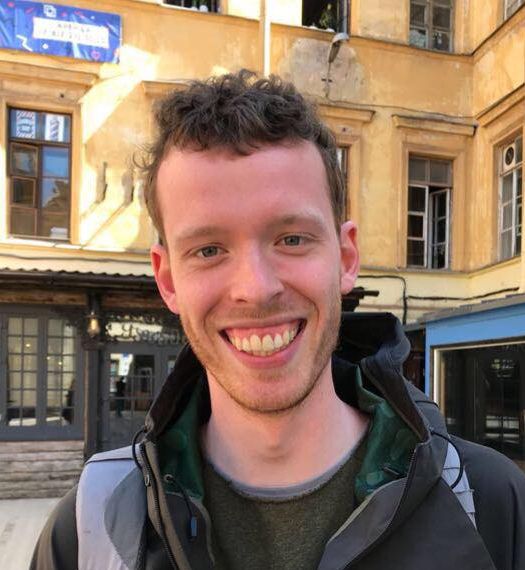
I enrolled for the Research Master to find out whether an academic career could be something for me
Before I started this master, I completed a BA Economics and a BA Philosophy of a Specific Discipline, both at the UG. It was during this second BA that I came to enjoy Philosophy so much that I could imagine to pursue an academic career. The reason I enrolled for the Research Master is to find out whether such a career could be something for me. I will share some of my thoughts about the Master programme.
The Research Master is build up around four compulsory Core Issues courses and a set of elective courses that you can choose from depending upon your own research interests. The Core Issues courses represent the current research projects of faculty members, but you can choose your electives according to your own interests. Our faculty has three departments, History of Philosophy, Theoretical Philosophy, and Ethics, Social and Political Philosophy. As my research interests fall under the latter department, I chose my electives within this department. However, you do not have to pick courses that fall within your specific department of specialization, you can also combine courses from the History department with let’s say the Theoretical department.
Get familiar with research activities that go on at a university
Besides the coursework, the programme offers you the opportunity to participate in academic events such as seminars in which faculty members discuss their own research. There are also a variety of reading groups that you can participate in. I experienced all of this as a good way to get familiar with the research activities that go on at a university. Part of the programme is to spend a semester abroad (this is mandatory for Dutch students).
Wouter started the Research Master in Philosophy in September 2018. He is currently a Philosophy PhD student in Groningen.
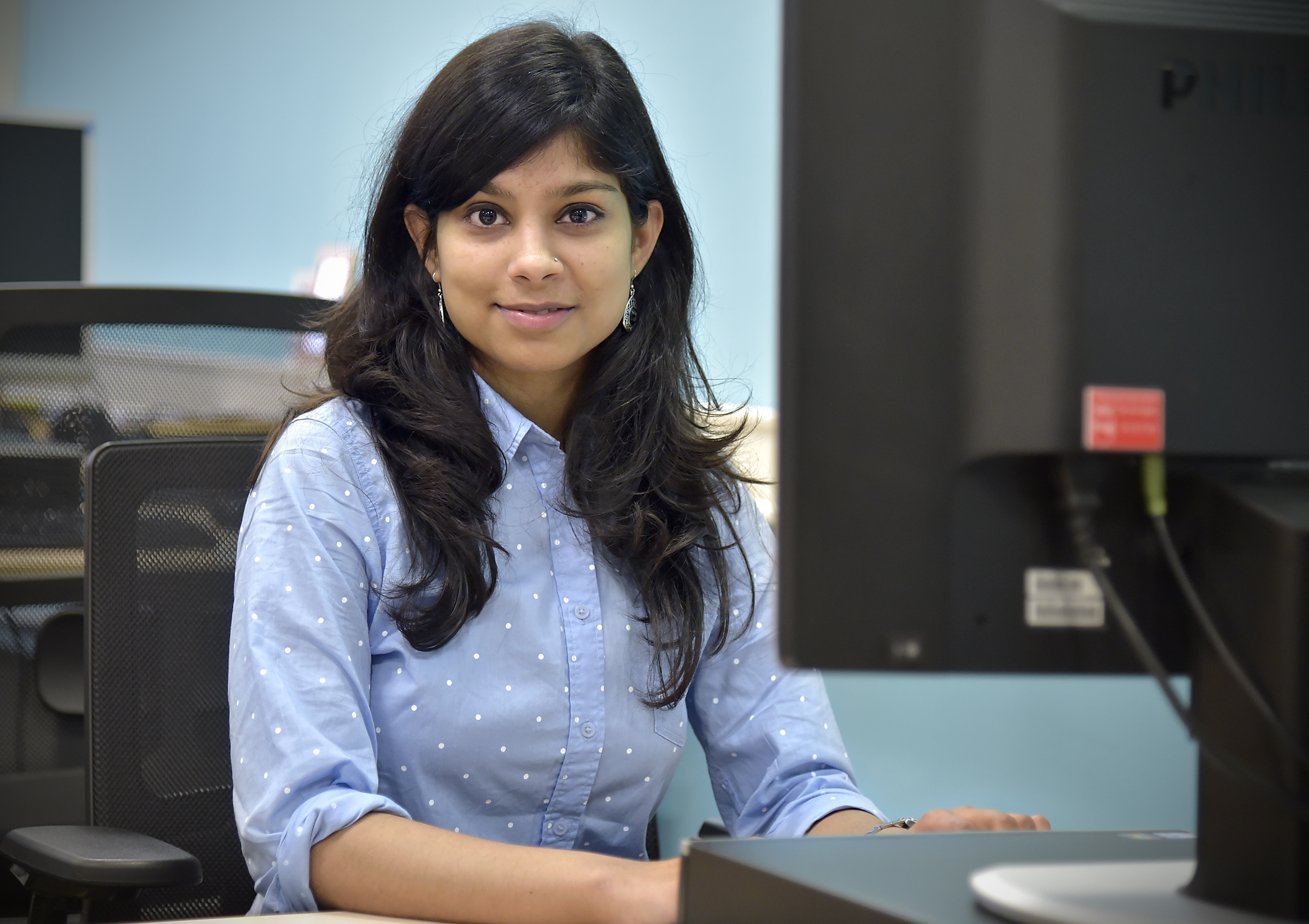
This programme prepares you for the next academic phase in every way.
While pursuing my Bachelor of Science in India, I noticed that
when I did experiments I liked it better to explain what I did and
why, than the practice itself. That's when I decided to switch to
philosophy and pursued a Master's in Birmingham.
Before deciding to come here, I participated in the Philosophy
Winter School last year. I would advise everyone to do this as it
is a good introduction to the Faculty.
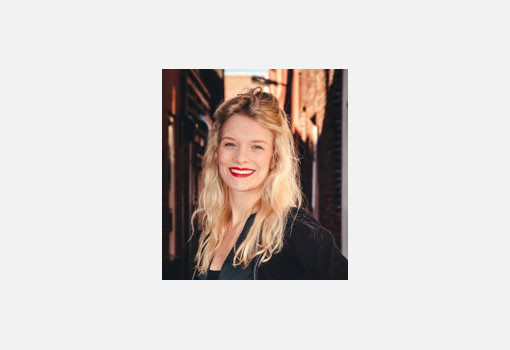
I got to present my papers at conferences in Berlin, Toronto and Nijmegen
This Research Master not only provides you with amazing reflexive and writing skills, but also allows you to get in touch with other philosophers in and outside of the Groningen department.
After my Bachelor’s programme I wanted to continue to study medieval and early modern philosophers. This is why I decided to do this 2-year, English-taught Research Master programme, a selective programme for those who want to pursue an academic career. As a part of this programme I spent a term abroad at the University of Toronto, and I got to present three of my papers at conferences in Berlin, Toronto and Nijmegen. This programme stimulated me to become an active member of the department and eventually even opened the door for me becoming a PhD student.
Since the male-female ratio in academia is still out of balance, I would hope to see more young female philosophers to join this great programme and to become part of the department, which, I think, forms a challenging and at the same time friendly community.
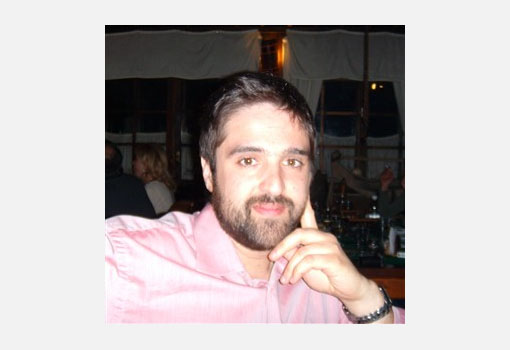
What could be better than the University of Groningen?
Before coming in Groningen I worked as a teacher of philosophy and Greek literature in secondary education in Greece. Continuing my studies in Philosophy was something that I wanted to do, since I finished my studies at the Philosophy department of the Aristotle University of Thessaloniki in Greece. I wanted to expand my horizons and get in contact with new ways of thinking and working. Hence, I decided to follow a programme abroad. What could be better than the University of Groningen?
The reason for choosing this specific faculty was that it is considered one of the best faculties in Europe and the best in the Netherlands.
I have to admit that the Faculty of Philosophy and the programme were more than I had expected. First of all, the programme is a very high level and competitive one, with a variety of subjects from almost all areas of philosophy. Secondly, it consists in high skilled, experienced, and specialized personnel. The very fact that it hosts a large group of PhD students and post-docs is a strong indication that it is a very active faculty in terms of research with a strong presence in the philosophical domain. What is more, the fact that there are regular colloquia and seminars organized, gives everyone the opportunity to present their research and discuss it with their colleagues. I think that this is very important for the prosperity and the progress of everyone individually and of the Faculty in total. I shouldn't omit to mention the extra-curricular activities, such as reading groups, which are regularly organised just for the sheer interest and engagement with a topic.
As for the atmosphere among the students and the teachers, I found it more relaxed and friendly than I was used to. The very fact that it is an independent Faculty gives it the leverage of a family atmosphere. The teachers are easily accessible and cooperative, while there is a good communication among the fellow students. What makes the whole atmosphere more comfortable and pleasant is the Kantine in which everyone gathers to have their lunch, relax and talk.
Nevertheless, there are quite a few difficulties that one faces by their arrival in Groningen. Even though both the University and the Faculty give a warm welcoming, and there is a general willingness to help on several levels, there are some objective difficulties that one has to face. Language and cultural differences are the most important ones. It is true that it takes time to adjust to the cultural differences and get used to speaking and talking in a foreign language. However, it is a minor obstacle that can be easily surpassed.
The search for accommodation and the bureaucratic issues that one has to deal with before and during staying in Groningen, are quite easily resolved. However, one must take care of them quite some time before arrival. Especially accommodation must be catered for before arrival due to the fact that the demand for housing is bigger than the offer. An easy and safe solution is staying during the first period in one of the student houses which are administered by the Housing Office. As for the bureaucratic issues (enrolment at the municipality hall, health insurance, bank account etc.), it is advisable to do some research beforehand as to what is required. I shouldn't fail to mention that I had quite some help from the Faculty and some fellow students.
Groningen is mainly characterized by its student life, since the RUG is a big university. Hence, it is the perfect place for someone to meet new people from different countries and cultural backgrounds from all over the world. Especially for someone easy-going, it is not difficult to make new friends and socialize a lot. Combined with the fact that Groningen is a city with a variety of options concerning entertainment and cultural events, I think that it offers great chances for new experiences. Even though it is considered a remote area within the Netherlands, it is a lively city with many facilities for almost every taste and an easy access to several places around Central and Northern Europe.
I am following the Research Master programme with a specialization in ancient metaphysics and epistemology (Plato and Aristotle). After the end of my studies at the Faculty of Philosophy I intend to continue research in my area of interest.
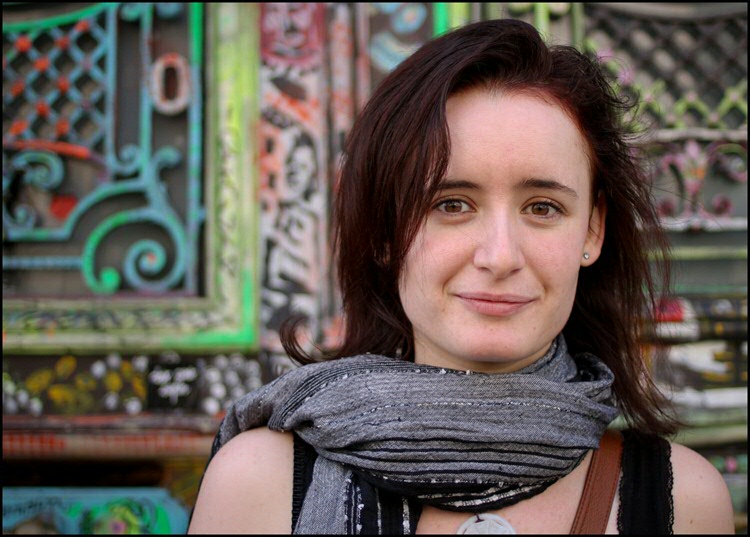
I immediately felt at home
After having finished my Bachelor Degree at the Université de Toulouse Le Mirail in France, I felt the deep need to explore new horizons, be they cultural or philosophical. Groningen was a great place for me to do so. I easily found a room in a student house through the Housing Office. Living in such a place has not only allowed me to quickly become fluent in English, but also to make great Dutch and international friends. Although I was away from my family, I immediately felt at home.
I should stress, however, that a stay abroad has to be prepared months in advance! Even though I had started making plans in January (for September), I still turned out to be late with some administrative issues in the end.
When I arrived at the Faculty, the staff welcomed me with open arms. I was also glad to see the freedom of thought and the genuine interest that was given to my work. The Faculty of Philosophy in Groningen is supported by a team of dedicated professionals, as they manage to make time and to properly advise each student.
I would even say that the Faculty of Philosophy stands out from other faculties because of its internal dynamics and variety of lectures and seminars. I remember specifically, that in June 2011, I went to a conference given by Peter Singer. It was quite an epiphany for me. I read The Life You Can Save and Animal Liberation in the week that followed, and that is when I realized how Practical Ethics are of central importance to me.
I then deepened my knowledge of the subject and was given the opportunity to express my views on Animal Ethics through my papers, a topic so dear to me. Moreover, it is during the time I spent in Groningen that I experienced the implications of long term research, especially through the elaboration and support of my Master’s thesis. I learned to appropriately use scientific data and fundamental philosophical opinions needed for researching. The Faculty's teachers and supervisors have been, and still are, of inspiration to me regarding these accomplishments. That is why today, I am more than happy to continue in the Research Master's programme in Groningen to perfect my researching skills.
Ingrid graduated with her research master's thesis: Veganism Light: The Feasibility of a Moral Ideal
The programme provides a great deal of study support. Small-scale classes and a friendly, informal setting stimulate contact between our staff and students. Each student is assigned a tutor that counsels the student on the choices of the individual study programme. Our international officer provides general information for international students and she also helps students to arrange the term abroad.
If you have any questions or problems you can always consult the study advisor. A study advisor can provide more detailed information about our programmes. He also monitors your study progress. You can also contact the study advisor in case of personal problems that affect your study performance. Students can make an appointment or drop by during consultation hours.